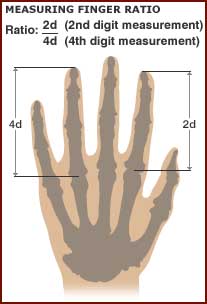|
REBECCA TRAISTER: Helen, how did you come to be involved with a dating site?
HELEN FISHER: When Match invited me to create a new dating site for them, I said, "Are you sure you've got the right person? Because I'm an anthropologist. I've spent my life studying why we're all alike, not why we're different." But I came up with a theory, supplementing what we already knew, for why you fall in love with one person and not another. I wanted to add the Darwinian, biological, evolutionary, chemical component. So I came up with a theory (that there are four personality types) and I designed the core questions on the site.
IAN KERNER: I have a question for Helen, because I was recently at a conference where people were saying that women's s e x u a l response has a lot more to do with emotional attunement at the outset, as opposed to desire, and that initial desire is going to have a broader emotional context for a woman than for men.
HF: Generally, women take a broader view of everything, for good Darwinian reasons: Women were the ones that were going to spend nine months having the baby, and most of the time for the first four years raising the baby. So women think of the contingency: "Well, he doesn't have a job. What about 10 years from now?" Women do more long-term thinking.
|
 
|
RT: Does that play into initial attraction, not just a later decision about whether to stay in a relationship?
HF: I don't think we understand much about female s e x u a l i t y yet. We way underplay men's desire for love and women's desire for just plain s e x. Women can have quite a high s e x drive. But there's a lot of data that they're a lot less interested in the one-night stand, for good Darwinian reasons.
IK: I was looking at studies of male and female college students who were having a lot of casual s e x; the women ended up being much more ambivalent, much more regretful, much more depressed.
|
HF: I just don't think that casual s e x is very casual. Any kind of s e x u a l activity drives up dopamine in the brain, and that can bring you closer to a threshold of romantic love. I also think both s e x e s often use casual s e x trying to trigger these other brain systems. They may tell you it's casual s e x, but they're hoping that he likes me or she likes me.
IK: I wanted to ask Helen about the fact that my wife says to me, "The only reason I'm still with you is that I like the way you smell." For all the mate-matching systems, aren't there always going to be these intangibles?
HF: Always. I finish my talks by saying "there will always be magic to love." All I'm trying to do is add another component to the mystery.
What I'm discovering on the site is how much you can read someone's face. We know you can read testosterone signs: the heavy jaw, heavy brow ridge. And little round face for estrogen. What we will do eventually is figure out how serotonin and dopamine express themselves physically. I'm interested in the smell thing, but they call it love at first sight because 80 per cent of the brain is devoted to the visual.
IK: What do you think about a generation of single people who are on SSRIs (antidepressants like Prozac)? Are they messing with their brain chemistry?
HF: Yes. At the university I'm working with, 40 per cent of incoming freshmen are on something. Ritalin for fun, androgens to build the body, SSRIs.
RT: And you say that antidepressants not only have s e x u a l side effects but that they dull the brain's ability to feel love?
HF: Yes, I wrote about it (with psychiatrist J. Anderson Thomson) in a chapter in the book Evolutionary Cognitive Neuroscience.
IK: I think you're on to something because, anecdotally, I meet a lot of single people on antidepressants and I would say their mating systems are very impaired. That's 40 per cent of my clientele when one person is on an antidepressant. And I hear from lots of people whose psychiatrists or GPs never even mentioned the s e x u a l side effects before prescribing.
RT: Can you talk at all about anthropological and biological models for matchmaking?
HF: I've looked at 100 species and I think we've evolved three different brain systems s e x drive, romantic love, and attachment, the deep sense of calm and security you can feel over the long term. Animals have all three systems. Now, 97 per cent of animals do not pair up to rear their young; only 3 per cent do. So they probably have a stronger attraction system and maybe romantic love, but not as strong attachment systems.
RT: Given the number of single mothers, could humans be heading toward a model in which women raise their babies on their own and just need insemination from the smartest, least scruffy male?
HF: I don't think so. Our brain system for attachment is so strong.
IK: On the other hand, I send my son to a school where a percentage of moms chose to be artificially inseminated or have a sperm donor. They are very successful in their careers, money is not really an issue, and they're raising their children on their own.
HF: But I would guess that if the right guy came along....
RT: Are you interested in creating marriages?
HF: Chemistry.com was designed for people interested in a long-term relationship. But we feel that a lot of other sites are behind the times in looking only for marriage, that there are many, many ways to have a beautiful long-term relationship that does not include marriage.
RT: Was it a major decision to provide matching services for gay couples?
HF: No. They asked me right off the bat whether I thought that the brain chemistry for gay was any different from the brain chemistry for straight, and I'm absolutely convinced that it isn't.
RT: What else is shifting in the world of dating and couples?
IK: So many gender stereotypes are being turned on their heads right now, between stay-at-home dads and the guy who makes less money than his wife. It's tremendously exciting, though I sometimes worry that the residue of the third-wave feminist cultural product creates almost a new set of expectations.
RT: Like that all women want casual s e x?
IK: Yeah, or that women should always be asking guys out.
HF: A good example of that is who pays. From an anthropological perspective, the guy always pays.
RT: Why?
HF: Because throughout the animal kingdom, it's food for s e x. A male chimpanzee will get the sugar cane and the female will go up and stare at him. You know, if somebody's staring at your food, you've got to deal with this. So the male gives her the sugar cane and she'll turn around and copulate with him and then march off with the food. Women biologically know there's no such thing as a free lunch.
RT: What is the thing about your fingers? It's on the Chemistry questionnaire.
HF: It's called digit ratio. In the womb, the brain is washed over by estrogen and testosterone. If you have a lot more testosterone than estrogen in the womb, it is going to build a longer fourth finger than pointer finger. If you've got a lot more estrogen in the womb, the pointer finger will be longer.
RT: What does it say about your personality?
HF: If you have more testosterone in the womb and you have a longer fourth finger, you're more likely to have musical ability, mathematical abilities, to be an engineer or architect or good at computer programming. You tend to have poorer social skills but be direct, decisive, ambitious, competitive.
|

|
RT: What does it mean to have more estrogen?
HF: Usually that you have good verbal skills, can find the right word rapidly, are good at remembering, better at compassion, nurturing, patience, have good people skills, and are better at reading posture, gesture, tone of voice and facial features.
RT: Do you believe lifelong monogamy is possible and natural?
HF: The word "monogamy" means a pair bond, which doesn't necessarily mean s e x u a l fidelity. What you're asking about is a long-term pair bond including s e x u a l fidelity. So ... sure! Forty-three per cent of people are serial monogamists, but that leaves the balance of people who form a pair bond and sustain it long term.
IK: I think that the beginning of a relationship, especially falling in love, is such a heightened state that people often don't know each other for a few years. Romantic love will mask more fundamental truths about our personalities, and I meet a lot of people who don't understand that they're really s e x u a l l y incompatible until they're well into the relationship.
HF: Yes. In fact, I say to people, "Don't marry him till that's worn off and you know what you've got."
 Find a Palm Reader in the USA! Find a Palm Reader in the USA!
Related sources:
www.thestar.com
Like go-get-em types? Look for a long fourth finger
The Finger Book
What they say about men with long ring fingers
What our fingers can tell us
Hand features & Male-Female differences
TEST: 5 hand features & your love life
HAND READING NEWS
|


